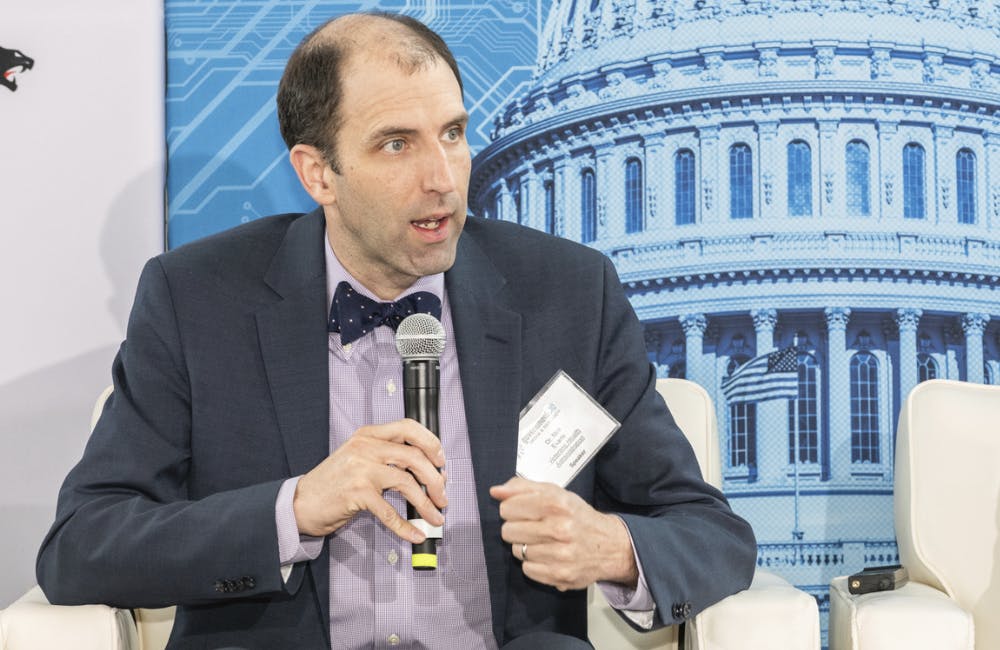HRSA’s New Portal Helps Reimbursement in Treating Uninsured COVID-19 Patients
The portal will help reimburse providers billions of dollars across the country.

The Department of Health and Human Services launched a new portal that will allow medical providers who have given COVID-19 testing or treatment for uninsured individuals to submit claims for reimbursement.
HHS’s Health Resources and Services Administration stood up the portal, called the COVID-19 Uninsured Program Portal, to ease COVID-19 claims reimbursements that recent relief legislation has appropriated. The Families First Coronavirus Response Act grants $1 billion to reimburse providers conducting COVID-19 resting for the uninsured, and the more recent $2.2 trillion relief package provides $100 billion in support for broader hospitals and medical providers.
Providers who have tested for COVID-19 or provided treatment for uninsured patients with the virus from Feb. 4 are eligible to request claims through the relief programs electronically and can overall expect reimbursements at Medicare rates, HRSA said.
“We have seen the heroic actions from health care providers serving on the frontlines of the pandemic,” HRSA Administrator Tom Engels said in a statement. “These reimbursements help meet the growing demand for testing and health care provider services relate to the COVID-19 pandemic and ensure that uninsured individuals get the care they need.”
Medical facilities or providers who enroll are required to check for health care coverage eligibility and confirm that each patient does not have insurance coverage, whether as an individual or through an employer, Medicare or Medicaid.
The program will cover reimbursement for a variety of medical testing and treatment areas, including:
- Specimen collection, as well as diagnostic and antibody testing
- Testing-related visits at providers’ offices, urgent care, emergency rooms or via telehealth
- Treatment in office and telehealth visits, emergency rooms, inpatient and outpatient visits, nursing facilities, long-term acute care, acute inpatient rehab, home health, emergency ambulance transport and other locations and scenarios
- FDA-approved vaccinations, once a vaccine is available
The program, however, will not cover any services that are not covered by traditional Medicare. This includes treatment without a COVID-19 primary diagnosis — except for pregnancy when COVID-19 is secondary — as well as hospice services and outpatient prescription drugs.
HRSA said that its program adapted a unique version of Smart Edits, an Electronic Data Interchange capability that detects potential errors within electronic claims. The tool will send messages back to submitting care providers if it detects an error in the claim so providers can ensure accuracy in their submissions.
To train providers in how to submit claims and learn more information abut the portal and program, HRSA will hold online webinars April 29 and 30.
Providers will be able to start submitting patient information and claims for payment on May 6.
This is a carousel with manually rotating slides. Use Next and Previous buttons to navigate or jump to a slide with the slide dots
-

Trump's Return to Office Sparks Focus on AI Infrastructure
A potential AI czar and prior AI executive orders lead to new considerations for R&D and energy infrastructure.
7m read -

VA Focuses on Continuous Improvement for 2025 EHR Rollout
VA plans to resume rollout of its EHR in FY 25, focusing recent feedback to drive continuous improvement amid the presidential transition.
4m read -

Trump's Intelligence Pick Backs Cybersecurity, Tech Accountability
The former congresswoman has called for improving cyber defenses and advocated for accountability in federal tech and data practices.
2m read -

Trump's Education Nominee Calls for Tech Vocational Programs
Linda McMahon has called for investments in the tech workforce and small businesses to remain competitive.
3m read








